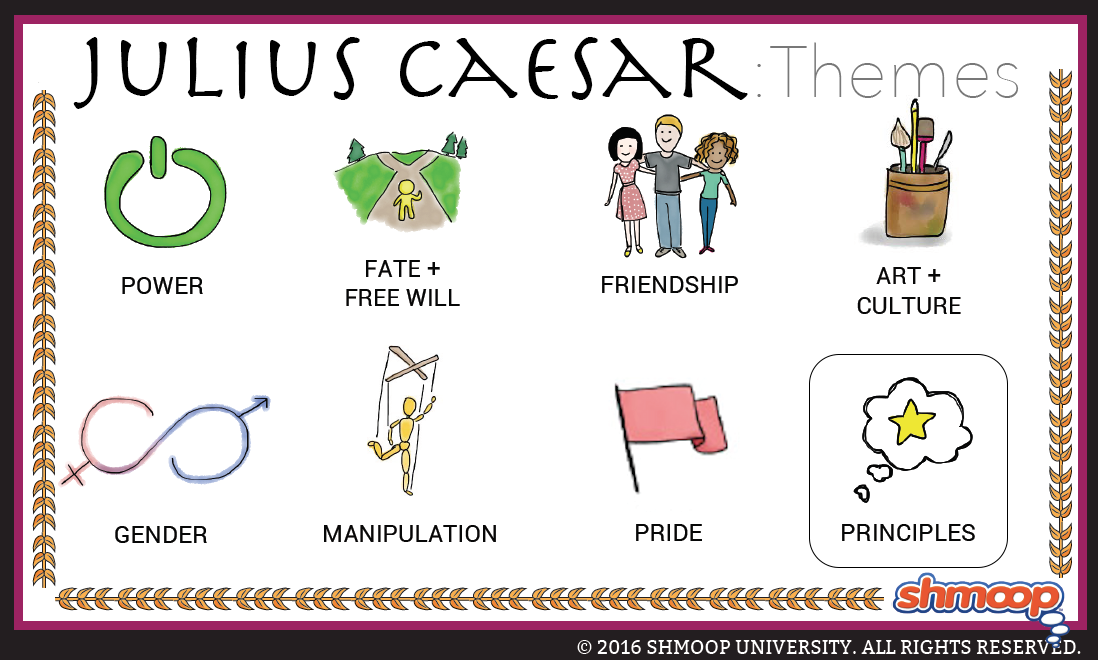 (Click the themes infographic to download.)
(Click the themes infographic to download.)
Honor is one of the central conundrums in Julius Caesar. Some actions are done in the name of honor, others in spite of it. National honor challenges personal honor, and obligations and desires put honor at stake. All these layers of honor, which often conflict with each other, ultimately lead back to the issue of perspective. Each character has to decide what's best for him and act on it accordingly. In the end, they can only do honor to their own judgment, as they have no clear standard for what is good in their world.
Questions About Principles
- What is the relationship between honor and pride? Cassius thinks Rome's honor is hurt by Caesar's growing power, but does he really just resent being ruled by a man he sees as no better than himself?
- Brutus asks the people to believe him based on his honor – that he wouldn't ever willingly harm Rome. Does the people's esteem of Brutus count for anything, especially when we know they're so easily swayed?
- Why does Brutus initially hang back from joining the conspiracy? Is he afraid, or does he think this covert deed will somehow tarnish his honor, no matter how noble its purpose?
- Over Brutus' body, Antony claims Brutus was the only honorable member of the conspiracy because he had no envy towards Caesar. Is this true?
Chew on This
Antony is not dishonorable; all he does is avenge the death of Caesar. Just as the conspirators thought their murder was excused by their honorable intention, Antony uses dishonorable means to restore honor to Rome.
Brutus is the play's most honorable character. He sacrifices himself for the state, accepts his punishment nobly, and chooses to take his own life rather than return to Rome in chains. He stays true to his own ideals and values from the beginning to the bitter end.